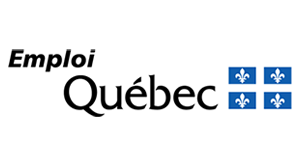
-
-
Online training
- Bientraitance and benevolence in everyday life 4-hour online training course
- Delirium: prevention, detection, intervention 3-hour online training course
- Dysphagia: from early detection to safe eating 4-hour online training course
- Alzheimer's disease, an adapted approach Online training
- Challenging Behaviours in Dementia Care: Prevention and Intervention Online training
- Personality disorders and difficult relationships: intervention kit 7-hour online training course
- Cognitive examination of the elderly Accredited online training - 7 hours
- Notes to the file 7-hour online training course
- Notes to file, basic concepts 3-hour online training course
- PQRSTU and clinical examination 3-hour online training course
- Wound care 10-hour online training course
- Palliative care: managing the most common symptoms at the end of life 7-hour online training course
- Palliative care: accompanying life to the end 7-hour online training course
- Polymedication, polydangers? Issues for healthcare professionals 7-hour online training course
- Clinical examination in a few minutes? yes, it's possible. 7-hour online training course
Interactive webinarsNotes to the file -
Online training
- Bientraitance et bienveillance au quotidien ONLINE 4 h
- Delirium: prevention, detection, intervention ONLINE 3 h
- Dysphagia: from early detection to safe eating ONLINE 4 h
- Alzheimer's disease, an adapted approach
- Challenging Behaviours in Dementia Care: Prevention and Intervention
- File notes (NEW VERSION 2024) ONLINE 7 h
- File notes, basic concepts (NEW VERSION 2024) ONLINE 3 h
- PQRSTU and clinical examination ONLINE 3h
- Wound care ONLINE 10 h
- Palliative care: managing the most common symptoms at the end of life ONLINE 7h
- Personality disorders and difficult relationships: a toolkit for intervention ONLINE 7h
- Polymedication, polydangers? Issues for healthcare professionals ONLINE 7h
- Cognitive examination of the elderly ONLINE 7h Accredited online training - 7 hours
- Clinical examination in just a few minutes? yes, it's possible. ONLINE 7h
Notes to the fileInteractive webinars - FAQ
- Contact us
-
-
Online training
- Bientraitance and benevolence in everyday life 4-hour online training course
- Delirium: prevention, detection, intervention 3-hour online training course
- Dysphagia: from early detection to safe eating 4-hour online training course
- Alzheimer's disease, an adapted approach Online training
- Challenging Behaviours in Dementia Care: Prevention and Intervention Online training
- Personality disorders and difficult relationships: intervention kit 7-hour online training course
- Cognitive examination of the elderly Accredited online training - 7 hours
- Notes to the file 7-hour online training course
- Notes to file, basic concepts 3-hour online training course
- PQRSTU and clinical examination 3-hour online training course
- Wound care 10-hour online training course
- Palliative care: managing the most common symptoms at the end of life 7-hour online training course
- Palliative care: accompanying life to the end 7-hour online training course
- Polymedication, polydangers? Issues for healthcare professionals 7-hour online training course
- Clinical examination in a few minutes? yes, it's possible. 7-hour online training course
Interactive webinarsNotes to the file -
Online training
- Bientraitance et bienveillance au quotidien ONLINE 4 h
- Delirium: prevention, detection, intervention ONLINE 3 h
- Dysphagia: from early detection to safe eating ONLINE 4 h
- Alzheimer's disease, an adapted approach
- Challenging Behaviours in Dementia Care: Prevention and Intervention
- File notes (NEW VERSION 2024) ONLINE 7 h
- File notes, basic concepts (NEW VERSION 2024) ONLINE 3 h
- PQRSTU and clinical examination ONLINE 3h
- Wound care ONLINE 10 h
- Palliative care: managing the most common symptoms at the end of life ONLINE 7h
- Personality disorders and difficult relationships: a toolkit for intervention ONLINE 7h
- Polymedication, polydangers? Issues for healthcare professionals ONLINE 7h
- Cognitive examination of the elderly ONLINE 7h Accredited online training - 7 hours
- Clinical examination in just a few minutes? yes, it's possible. ONLINE 7h
Notes to the fileInteractive webinars - FAQ
- Contact us
Mire Formation Conseil inc. / Palliative care: managing the most common symptoms at the end of life ONLINE 7h





Andrée Girard says:
I loved your training, everything was perfect, I still have to read what I downloaded to deepen my knowledge and I will surely repeat the modules. Thank you so much, I'm already looking forward to my next training session. I'm definitely going to choose you.
Gina Desgagné says:
This highly enriching training will enable me to provide end-of-life care of the highest quality, and thus provide invaluable support to a clientele that deserves to leave with dignity.
Thank you to Mireille Guillemette, an excellent teacher. I look forward to training with you again.
Jeannina Jean Francois says:
Thank you Madame Guillemette for this training. I learned a lot about the management of the most common symptoms at the end of life, which will help me to have a good approach to the patient and loved ones. I am very satisfied and I like your methodology in training and self-evaluation.
Jeannina Jean Francois says:
Now I've made up for my shortcomings thanks to your training, which covers everything down to the smallest detail. It will enable me to give quality care to my patients at the end of life and to have a better approach to their loved ones.
Many thanks, Madame Guillemette. We look forward to seeing you again in another training session.
France Moreau says:
This training will help me improve my end-of-life care...
Thank you for this wonderful training course...your way of explaining your knowledge and experience takes us into another dimension and makes us realize even more the help we can give to help accept this end-of-life stage...
Elena Socolovici says:
Thank you for your training, full of information to know in our workplace.
Christine Larose says:
i really enjoyed your course i learned a lot thank you very interesting
Mariam Coulibaly says:
Very nice training, enriching, pleasant to follow, presenter full of beautiful experiences and excellent.
Manon Hamel says:
Wow, I loved this training! I can't wait to share my experience with my colleagues and recommend your training to my professional circle. Beautiful presentation and easy to use, perfect flow. Thank you so much for giving us the opportunity to do training in the comfort of our own home and according to our availability after work. Thanks again, everything was perfect and very interesting.
Lynne Louise Cayouette says:
great training.
Nadia Theriault says:
thank you very much for your training, it was very interesting.
Louise Viau says:
Hello Mrs Guillemette
Very nice training, enriching, a training that should be given to health personnel.
Merci bcp pour cette belle formation, très appréciée
Have a nice day
Marlyne Lebel says:
Hello Ms. Guillemette!
I loved your training. It gave me the desire and desire to seek out other training and information for my continuity in this wonderful field of nursing. I was privileged that my employer offered us your training, which was very appropriate for the environment in which I work. I am grateful to you for sharing your knowledge and expertise in the field.
Thank you and keep up the good work!
Eric Dapnet says:
very good training
Richard Montmagny says:
very constructive training i did not want to do it as part of my professional inspection but i am very satisfied despite my almost 40 years of practice i have learned things so thank you
France Hotte says:
very nice training, covers the whole subject, very interesting, it was a great help.
Daisy Audet says:
good training .but I would have liked the training to talk more about breathing patterns to better describe the general condition in the notes in the file .
Mireille Guillemette says:
Thank you for your comment. The description of the general condition and the recording of the result of the respiratory evaluation are covered in detail in the 7h Notes to File course, and in the Clinical Examination course. Please do not hesitate to contact me if you have any questions. mireille.guillemette@mireformations.com